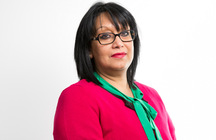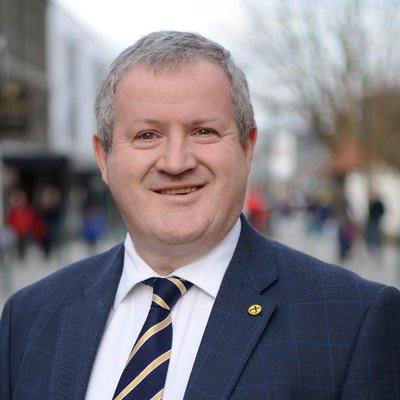Baroness Verma – 2016 Speech on Agenda 2030
Below is the text of the speech made by Baroness Verma, the Parliamentary Under Secretary of State for International Development, at the UN in New York on 23 February 2016.
Thank you Mr President, I’m delighted to be here to talk to you today.
Today’s discussion comes at an opportune moment. There are real reasons to be optimistic – 2015 saw agreement of a series of ambitious universal deals – financing, climate and the Global Goals. The UK takes these universal commitments seriously, domestically and internationally and is committed to playing its part to make sure these are achieved.
Against that optimism, we are faced with so many protracted crises; in Syria, in Yemen, in South Sudan. At their heart are conflict and instability. So it’s clear that if we’re to achieve Agenda 2030, and live up to our promise to leave no one behind, we need to do more to prevent conflict and build, resilient, peaceful societies.
It is so often the poorest people who are most vulnerable to crises and who are further impoverished when stability and security breaks down. The statistics back this up; conflict-affected states were the most off-track in achieving the MDGs.
Approximately half of the global poor live in countries affected by conflict and violence. So it’s clear that we can’t look at peace, development and humanitarian issues in isolation. The 3 are inherently interlinked. To fail on one, is to undermine progress on the others.
The United Kingdom has made it a priority to improve our efforts on these three strands.
In addition to our commitment to 0.7%, we are one of the few Council Members to believe that the Security Council has a role to play in preventing future conflicts, and not just ending those that are ongoing. That’s why our Secretary of State for Development chaired the Council last November; the first time a Development Minister has done so. It’s also why we co-hosted the London Conference for Syria and the Region earlier this month, where we and others worked hard to better integrate these three issues through the Conference outcomes.
The UN’s mandate means it operates at the nexus between peace, development and humanitarian. And if we are to succeed, whether in Syria or elsewhere, the UN should be at the centre of our efforts.
When I talk about integrating humanitarian, peace and development work it of course includes the UN’s work on security, human rights and international law too.
The Secretary-General’s response to Agenda 2030, the Human Rights Up Front Initiative, the ECOSOC dialogue and yesterday’s meetings, have all firmly acknowledged the need for strong progress by the UN in this area.
This year, we have a real opportunity to make that progress. The World Humanitarian Summit, the Secretary-General and World Bank’s Migration and Refugees Summits, the ECOSOC dialogue and negotiation of the Quadrennial Comprehensive Policy Review can all help ensure the UN is ready to play this central role.
I believe there are 3 issues that need to be addressed as part of this process.
First, the UN needs to manage protracted crises more effectively. The UN’s engagement in peacekeeping and political negotiation in many of the world’s more difficult conflicts is strongly valued. But the UN has to overcome operational and funding silos to be able to achieve lasting political solutions, longer term peacebuilding and development. The humanitarian and development parts of the UN need to work more effectively together.
Second, the UN needs to act earlier to prevent conflict and to balance a better approach to crises with action to address the underlying causes of fragility and conflict. This means being a smoke alarm as well as a fire extinguisher; and really prioritising conflict prevention as much as resolution. It also means investing in support to help build institutions, improve governance and the rule of law – the golden thread that will support economies to thrive and grow.
Thirdly, the UN needs a much more variable, flexible footprint, focusing where help is most needed, on the most vulnerable and marginalised including women and girls, and where the UN’s unique legitimacy as a universal body most equips it to make a difference, with the ability to surge to meet a sudden need or respond quickly to an emerging crisis.
It’s very easy to talk in generalities, so I’d also like to set out some thoughts on what is needed in practical terms. I think it requires change in 3 areas: fully implementing Delivering as One; leadership; and funding.
Delivering as One has made progress, as I have seen for myself in the countries I’ve visited, but not yet enough. There is strong and growing demand for Delivering as One and it is proving it can enable a more effective UN voice. We need to see its full implementation, by all entities, including the Standard Operating Procedures and the Management and Accountability Framework. We’d also like to explore ways to ensure more coordinated planning, budgeting and risk assessment, between the UN’s development, humanitarian and peacebuilding support.
Delivering as One goes hand in hand with effective leadership: resident and humanitarian coordinators, often the heads of the UN in country, must be individuals that can deliver strong leadership that responds to both short and longer-term needs. They also require better support from the UN system: clearer authority to draw on all assets of the UN system in support of national priorities, sustained funding through contributions of all entities and more dedicated advisory support, building on the success of the peace and development advisers.
Let me now turn to my third point; funding. I have already spoken about the need focus on long-term conflict and crisis prevention and bring all the sources of funding onto the same page to ensure the most strategic allocation. There is a need to increase flexibility between allocations to humanitarian, peace and development funds. And there is a need to attract new forms of finance into the system, including potential private sector investment, becomes ever more acute.
Mr Vice President, through these steps and more, we have the chance to use the links among peace, development and humanitarian issues to our advantage. Instead of instability hampering development, let us build on stability to advance it.
The real test will be delivery at country level, and improvements to the quality of lives for people on the frontline – so the focus on Delivering as One, strengthening the Resident Coordinator system and underpinning frameworks is absolutely critical. But this will also require working back up the chain to headquarters with effective leadership from the executive and Member States to change procedures and incentives to support joint working, better delivery and better outcomes.
We have some ideas, but don’t have all the answers – I hope today’s discussions can help us start to formulate some of them.
Once again, thank you for the opportunity to speak and thank you for listening Mr President and distinguished delegates.


